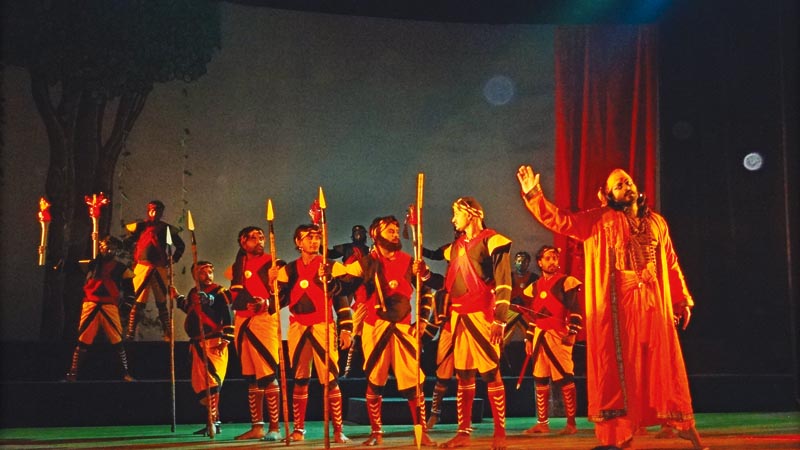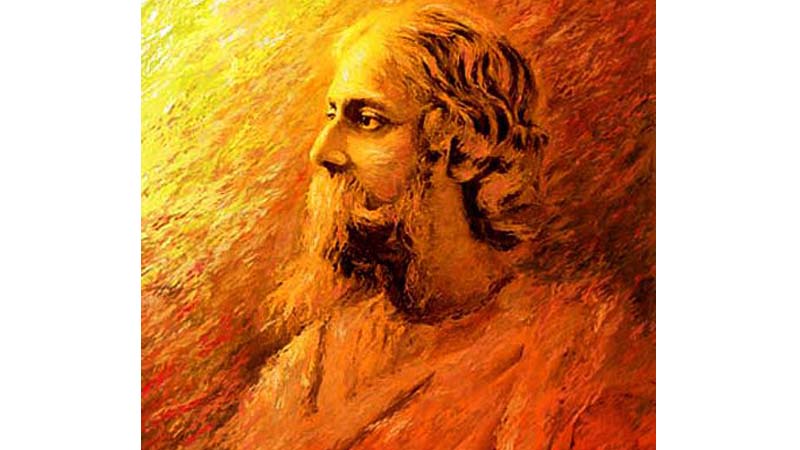Jakhon Porbena Mor Payer Chinnho Ei Batey

Bengalis on both sides of the divide take extra pride in speaking, reading and writing the same language as Rabindranath Tagore did. It can be said with confidence that Bangla language owes its lucidity, modernity and acceptability to the world community because of the hard work of this single personality who was a poet, short story writer, song writer, travelogue writer, dramatist, playwright, composer, grammarian, researcher, actor, social reformer and so on and so forth. He did work a lot to free the language from its Sanskrit structure and make it reader-friendly.
Tagore excelled in all the departments of literature and performing arts. He introduced new prose and verse forms. Through him the West came to know a lot about Indian culture and similarly, he introduced European drama, songs and compositions to Indians. He is the first non-European to have received Nobel Prize for literature for his work ‘Gitanjali’ in 1913.
Tagore was born in Kolkata on May 7, 1861. Son of the religious reformer of the time Rishi Debendranath Tagore, he grew up in a family environment of literature, art, culture, religious tolerance and humanity. As a young man he went to England to study but returned to Kolkata after a couple of years. He devoted his time to self-education and writing. He published his book of poetry titled Manasi in 1880. He also became very popular among his young fans for his social and political satire that was often critical of his fellow Bengalis.
 A scene from the play Valmiki Pratibha
A scene from the play Valmiki Pratibha
In order to look after his family zamindary business in East Bengal, he traveled to Kushtia and Shahzadpur in 1891 and kept coming for the next 10 years. He was simply amazed by the serenity of the pristine countryside and the river Padma there. He composed many poems in these two places and was also introduced to Baul songs. He borrowed from the Baul songs to compose many of his famous songs.
While in East Bengal he wrote his most popular book of poems Sonar Tari (1894 -The Golden Boat). In his lifetime he wrote and composed over 2,000 songs, which are being considered almost as hymns by his fans. In fact, his ‘Puja porbo’ songs are in real sense religious hymns. “Gitanjali” was hailed by his English readers including Poet W.B. Yeats. Tagore was also awarded a knighthood in 1915, but he returned it in 1919 as protest against the killing at Amritsar (Jallianwalla Bagh) by the British army.
One of his greatest and unique achievements is his founding in 1901 of an experimental school in rural West Bengal at Shantiniketan, meaning an “Abode of Peace”. It was not like traditional schools or colleges. He collected the best of teachers in all subjects including music to teach students coming from all over the world.
Tagore travelled frequently all over the world despite the hazards of such undertaking those days when modern and fast transports were still a dream. Travelling by sail boats, engine boats and trains, he attended many lectures and reading sessions from his works in Europe, South America and East Asia as far as Japan. He also amazed his fans by taking up the painting brush in the late 1920s. His paintings are placed among those of the front ranking painters of his time.




